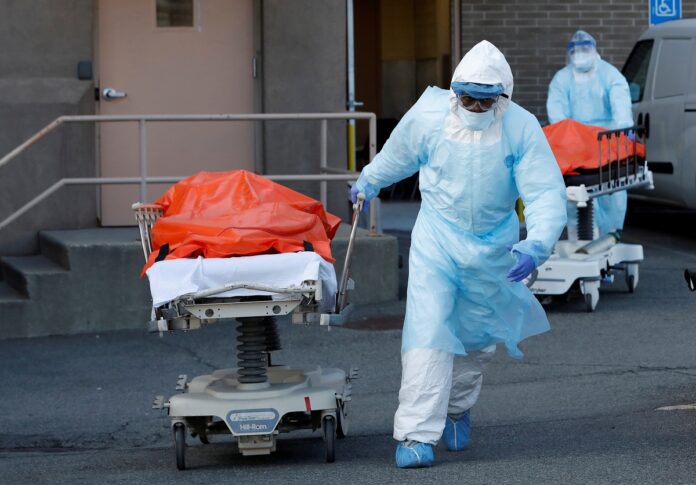
Vidya Sethuraman
India Post News Service
A new hybrid Covid variant, XEC, has emerged in 25 states in the US, and experts predict it will cause a surge of Covid-19 cases this fall. The Centers for Disease Control and Prevention (CDC) defines XEC as recombinant or hybrid of the strains KS.1.1 and KP.3.3 both from the Omicron family that became the predominant strain in the U.S. late December 2022. Speakers at this weekly briefing discussed the new variant, the updated vaccines, vaccination hesitancy and weariness, and explained low vaccination rates in Latino and Black communities.
The hybrid strain was first reported in Berlin late June but has spread across Europe, North America and Asia with the countries Germany, France, the Netherlands and Denmark leading cases. While there’s no indication the XEC strain will increase the severity of the virus, it could potentially become a dominant strain as Omicron variants are more contagious. However, currently available COVID-19 vaccines and booster shots are particularly protective against XEC as it is a hybrid of two Omicron strains.
Dr. Peter Chin-Hong, an infectious disease expert at the University of California, San Francisco, said that “XEC” is the same as the strains that appeared in previous years. It is a member of the “Omicron” family, and is also a member of “KP.3” and “KS. 1.1” A mixture of viruses. In Europe, especially Germany, about 13% of cases are caused by this new variant; in the UK, it accounts for about 7%; and in the United States, it accounts for about 1%, but the number continues to rise.
He added that “XEC” is more contagious and is expected to become the dominant strain this autumn. It is a recombinant variant and it is unclear whether it will cause more severe symptoms. However, vaccination may still provide some protection as general immunity in the community increases. So far, the new virus has not caused more severe illness, and no new strange symptoms have been discovered. The COVID-19 symptoms that are of concern this year come from the gastrointestinal tract, such as diarrhea, vomiting, etc. In addition, the common symptoms are still sore throat, nasal congestion, headache, and muscle pain.
Benjamin Neuman, Professor at Texas A&M University, pointed out that from a scientific perspective, the vaccine is usually effective for about 4 to 6 months, and then the virus will begin to mutate. If we only consider it from a scientific perspective without considering practical factors such as cost, the U.S. Food and Drug Administration (FDA) should update vaccines twice a year instead of once a year. Although the effectiveness of the vaccine may not be ideal from a scientific perspective, this is a problem due to the rapid mutation of the virus; considering many practical limitations, annual vaccination is still the best prevention strategy.
The updated version of the vaccine and the Novavax vaccine are more related to the new strain and are more protective. For many people, the last vaccination may have been a year or more ago, and because it is uncertain how long the immune response from white blood cells or T cells lasts, some people may need to get a new vaccine to gain new immunity.
The CDC currently recommends that everyone aged 6 months and up get the updated COVID-19 vaccine to protect against serious illness and complications from the virus. Wearing a mask (like a KN95 or N95) in crowded indoor situations and when traveling can help to lower your risk of getting infected.






